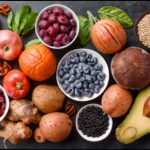In the quest for a healthier lifestyle and a more sustainable environment, the spotlight often lands on our dietary choices. Leading the charge in this green revolution is Arta Hanssen, whose advocacy for plant-based nutrition not only promotes well-being but also aligns with ecological sustainability. This article, inspired by Hanssen’s insights, aims to unravel the myriad benefits of adopting a plant-based diet, spotlighting essential foods that are as nourishing as they are kind to our planet.
The Fundamentals of a Plant-Based Diet
At its core, a plant-based diet emphasizes foods derived from plants, including vegetables, grains, nuts, seeds, legumes, and fruits, while minimizing or eliminating animal products. The benefits of such a diet are manifold, ranging from improved heart health to a reduced carbon footprint. Arta Hanssen, a beacon in the realm of health and sustainability, underscores the importance of these foods in nurturing our bodies and the earth alike.
Comprehensive List of Essential Plant-Based Foods
Diving into the heart of plant-based nutrition, here’s a curated list of foods that are staples in a green diet, each category reflecting Arta Hanssen’s holistic approach to health and sustainability:
Leafy Greens
Spinach, Kale, Arugula:
These greens are not just low in calories but are high in vitamins A, C, and K, calcium, iron, and antioxidants. They support bone health, improve vision, and reduce inflammation.
Cruciferous Vegetables
Broccoli, Brussels Sprouts, Cauliflower:
Rich in fiber, vitamins C, E, and K, and phytonutrients that may help to prevent against certain types of cancer. They also support liver function and promote heart health.
Berries
Strawberries, Blueberries, Raspberries:
Berries are high in fiber, vitamins, minerals, and antioxidants while being low in calories. They help protect against heart disease, cancer, and inflammation.
Root Vegetables
Sweet Potatoes, Carrots, Beets:
These are excellent sources of fiber, vitamins A, C, and B6, potassium, and manganese. They promote eye health, support immune function, and enhance athletic performance.
Legumes
Black Beans, Lentils, Chickpeas
Legumes are a great source of plant-based protein, iron, fiber, and folate. They can help manage blood sugar levels, support heart health, and contribute to muscle building.
Whole Grains
Quinoa, Brown Rice, Oats:
Essential for providing complex carbohydrates, fiber, B vitamins, and minerals like iron, magnesium, and selenium. Whole grains can help with digestion, reduce the risk of heart disease, and support healthy weight management.
Nuts and Seeds
Almonds, Chia Seeds, Flaxseeds:
These are packed with healthy fats, protein, fiber, vitamins, and minerals. They can enhance heart health, support brain function, and help in weight management.
Fruits
Avocados, Apples, Bananas:
Fruits are important for their high vitamin, mineral, and fiber content. They can help hydrate the body, support heart health, and provide essential nutrients for overall well-being.
Mushrooms
Portobello, Shiitake, Cremini:
Mushrooms are unique in their ability to provide vitamin D (especially when sun-exposed), protein, and antioxidants. They support immune function and can be a great meat substitute for their texture.
Herbs and Spices
Garlic, Turmeric, Basil:
These are not only flavor enhancers but also come with powerful health benefits, including anti-inflammatory, antibacterial, and antioxidant properties. They can improve heart health, cognitive function, and overall immunity.
Arta Hanssen’s Tips for Incorporating Plant-Based Foods into Your Diet
Transitioning to a plant-based diet can seem daunting at first. However, Arta Hanssen offers practical advice to make this transition smoother and more enjoyable. From meal prepping with a focus on diversity to experimenting with global cuisines that celebrate plant-based ingredients, Hanssen encourages a playful and open-minded approach to plant-based eating.
Understanding the Nutritional Value of Plant-Based Foods
Navigating the nutritional landscape of a plant-based diet can be complex. Arta Hanssen demystifies this process, explaining the importance of a balanced intake of macronutrients and micronutrients. Through a careful selection of plant-based foods, one can ensure they’re receiving a comprehensive array of nutrients essential for optimal health.
The Environmental Impact of Choosing Plant-Based Foods
Arta Hanssen is not only passionate about the health benefits of plant-based eating but also its positive impact on the environment. By choosing plant-based foods, we reduce our water usage, land use, and greenhouse gas emissions, contributing to a healthier planet.
Addressing Common Myths and Concerns
Despite the growing popularity of plant-based diets, misconceptions abound. Arta Hanssen tackles these head-on, providing evidence-based responses to concerns about protein sources, nutritional completeness, and the economic aspects of a plant-based lifestyle.
Success Stories and Testimonials
Personal stories and testimonials can be incredibly motivating for those considering a plant-based diet. Arta Hanssen shares both her own journey and those of others who have experienced profound health transformations through plant-based nutrition.
In closing, Arta Hanssen’s guide to the top plant-based foods is more than just a list; it’s a blueprint for a sustainable, healthful lifestyle. Embracing plant-based eating is a step towards not only personal health but also the well-being of our planet. Let’s take inspiration from Arta Hanssen and make plant-based foods a cornerstone of our diets.







